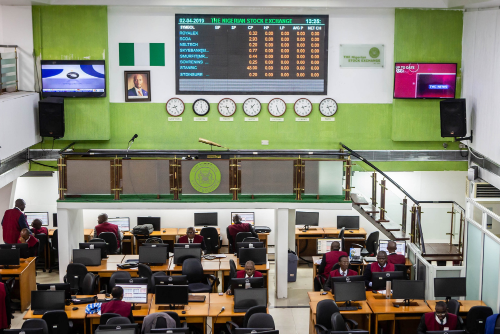Nigeria to Triple Capital Gains Tax on Foreign Equity Investors to 30%

TLDR
- Nigeria will raise the capital gains tax (CGT) on foreign investors in local equities from 10% to 30% starting in January 2026
- The higher levy will not apply to investors who reinvest their proceeds into other Nigerian securities, whether listed or unlisted, the Finance Ministry said
- The move comes amid a 40% rally in Nigerian equities this year, driven by President Bola Tinubu’s market reforms — including fuel subsidy removal, naira liberalization, and monetary tightening
Nigeria will raise the capital gains tax (CGT) on foreign investors in local equities from 10% to 30% starting in January 2026, under a new tax law aimed at boosting government revenue and deepening domestic reinvestment.
The higher levy will not apply to investors who reinvest their proceeds into other Nigerian securities, whether listed or unlisted, the Finance Ministry said.
The move comes amid a 40% rally in Nigerian equities this year, driven by President Bola Tinubu’s market reforms — including fuel subsidy removal, naira liberalization, and monetary tightening — which have drawn renewed investor interest.
Analysts, however, warn the tax hike could trigger profit-taking before year-end, potentially weighing on liquidity and market sentiment. Foreign investors accounted for 21% of total trades, or ₦1.45 trillion ($1 billion), in the first eight months of 2025, according to the Nigerian Exchange Group.
Daba is Africa's leading investment platform for private and public markets. Download here
Key Takeaways
Nigeria’s decision to triple capital gains tax for foreign investors marks a sharp policy shift that may test the resilience of its stock market rally. While designed to encourage capital retention and broaden the tax base, the 30% levy could erode foreign investor appetite just as Nigeria seeks to reestablish credibility in global markets. The exemption for reinvested proceeds signals an effort to retain long-term capital and support local market depth. Yet, with foreign participation already modest and domestic liquidity dominant, short-term volatility is likely as investors adjust positions before the January deadline. The move aligns with President Tinubu’s broader fiscal consolidation strategy, balancing revenue mobilization with economic reform, but risks dampening the foreign inflows that have underpinned Nigeria’s asset recovery. Its ultimate impact will hinge on enforcement clarity, investor sentiment, and the strength of ongoing currency and market reforms.

Next Frontier
Stay up to date on major news and events in African markets. Delivered weekly.
Pulse54
UDeep-dives into what’s old and new in Africa’s investment landscape. Delivered twice monthly.
Events
Sign up to stay informed about our regular webinars, product launches, and exhibitions.




